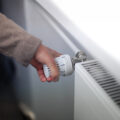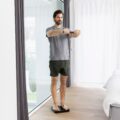Preventing Colds

As soon as the temperatures drop, runny noses start appearing everywhere – first a little tickle in your throat, then the first sneeze. Now is the perfect time to act early. With a few simple habits, you can prevent a cold, ease a runny nose, or even stop an oncoming cold in its tracks. More sleep, fresh air, or a few smart helpers from your home pharmacy – if you’re prepared, you have the best chance to stay fit throughout the cold season and keep colds and flu from becoming a constant issue.
The medical basics of preventing colds and flu
Not all runny noses are the same: a common cold (upper respiratory infection) usually develops gradually – with a sore throat, headache, and a runny nose. The real flu, on the other hand, hits you suddenly – with high fever and aching limbs that literally knock you off your feet. This difference alone shows why early prevention makes so much sense. But both illnesses have one thing in common: they enter through the same gateways – dry, weakened mucous membranes. Normally, your nose and throat act as strong bodyguards that trap viruses effectively. However, dry indoor air, stress, or lack of sleep can weaken this protection.
The result: germs have an easy job. Everything that keeps your mucous membranes moist and strengthens your immune system helps to prevent or ease a cold before it slows you down. Here’s what’s important to know: cold viruses usually enter the body via droplet infection. When coughing, sneezing, or talking at close range, tiny particles float through the air and land on the mucous membranes of the nose or throat. There, they attach to epithelial cells and begin to multiply. While a cold can be caused by around 200 different viruses, the real flu is always caused by the influenza virus.
What really helps? Preventing colds at the first signs
That tickle in your nose, the urge to sneeze, or a slight chill are warning signs telling you it’s time to act. With just a few simple steps, you can help your body strengthen its defenses and possibly avoid a full-blown cold.
First-aid measures for colds:
- Stay hydrated: Plenty of fluids keep your mucous membranes moist and support their natural barrier function. A cup of hot herbal tea or clear broth also warms you from the inside and brings soothing relaxation.
- Rest and warmth: Your immune system is working at full speed – give it time to recover. Wrapped up under a heated blanket, you can spend a cozy evening while helping your body recharge.
- Inhalation for clear airways: Warm steam soothes mucous membranes, relieves irritation, and moisturizes your airways. Modern inhalers that create ultra-fine aerosols make this especially effective – and much more practical than the traditional bowl method.
- Nasal rinses as instant relief: They flush out viruses, dust, and allergens before they settle and help your nasal passages breathe freely again.
- Improve indoor air: Dry heating air stresses your respiratory system. A humidifier – perhaps combined with an aroma diffuser – helps improve room climate and keeps your mucous membranes resilient.
With these first-aid measures, you strengthen your body’s defenses, can stop a cold in its early stages, and create little moments of comfort that make winter easier.
Small helpers with big impact – preventing and easing colds and flu
Between hot tea, hot water bottles, and rest, there are two tools we truly recommend. They’re easy to use, suitable for the whole family, and make breathing much easier during cold season.
Ultrasonic Inhaler for Colds
No more old-school steam bowls! With the IN 515 ultrasonic inhaler, inhalation becomes much more pleasant. The fine mist reaches deep into the airways, loosens mucus, and moisturizes dry membranes – helping to prevent and relieve cold symptoms. It operates almost silently and starts at the push of a button. Plus, with the included masks, even children can use it easily – a real family helper during cold season.
Nasal Rinse for Allergies and Colds
Our NI 200 Nasal Irrigator is a little freshness boost for your nose. It gently flushes out pollen, dust, and viral particles, allowing the mucous membranes to breathe freely again. Especially when the heating is on or sinus pressure builds up, it brings real relief. Practical too: it’s foldable, easy to clean, and comes with two nozzles for adults and children. A handy tool that quietly waits in your bathroom cabinet – ready when you need it.
Preventing colds – Dos & Don’ts for everyday life
Sometimes, it’s the small habits that make a big difference. Instead of long lists, here’s a quick look at what helps – and what doesn’t:
| Dos – What really helps | Don’ts – What makes colds easier |
|---|---|
| 7–8 hours of sleep for strong immunity | Sleep deprivation and chronic stress |
| 1.5–2 liters of water or tea daily | Too little fluid, dry mucous membranes |
| Walks in fresh air, moderate exercise | Constant sitting without activity |
| Vitamin-rich diet with fruit, vegetables & zinc | Fast food, too much sugar or alcohol |
| Regular ventilation & air humidification | Overheated, dry rooms and cigarette smoke |
| Wash hands and maintain hygiene | Constant touching of eyes and face |
And don’t worry: it’s not about being perfect. Even adopting a few of these “Dos” into your routine will prepare you much better for the next cold wave.
When to see a doctor
Most colds are mild and clear up within seven to ten days on their own. But sometimes first-aid measures aren’t enough – then it’s important to seek medical advice.
Warning signs to watch for:
- Sudden high fever above 39 °C (102 °F)
- Severe headache or body aches that persist
- Shortness of breath, wheezing, or a lasting cough
- Pain in the sinuses or ears
- Persistent fatigue lasting several days
In such cases, it could be real flu, a bacterial infection, or a complication. Better to visit a doctor once too often than to take unnecessary risks – especially for children, elderly people, or anyone with a weakened immune system.
Important: Antibiotics are ineffective against viral infections and only work on bacteria – they cannot kill or stop viruses from multiplying. That’s why they don’t help with common colds and may even disrupt the body’s natural bacterial balance. Only if a bacterial infection develops (such as tonsillitis or pneumonia) should a doctor prescribe antibiotics.
Preventing colds also means taking care of yourself
You can’t always avoid catching a cold completely – but you can do a lot to make sure it doesn’t take hold or becomes milder. Build small healthy routines into your daily life, listen to your body’s first signals, and use helpers that soothe your nose and airways while making it easier to breathe. And maybe, this season is also an invitation to slow down and enjoy a bit of “me time”: a hot cup of tea, a cozy moment under a heated blanket, or a few minutes of mindful relaxation can do wonders. That way, you’ll not only strengthen your immune system but also your overall well-being – and glide more comfortably through the winter months.




